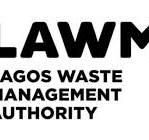The National Identity Management Commission (NIMC) has reported significant progress in its ongoing efforts to streamline and sanitize the national identity registration process in Nigeria. A key achievement is a substantial reduction, exceeding 40%, in incidents of extortion and unofficial charges levied against citizens during enrolment. This positive development stems from a series of reforms implemented by the NIMC aimed at curbing the long-standing issue of racketeering and unauthorized payments that had previously plagued the system and eroded public trust. The commission has rigorously enforced a transparent fee structure for modifications and authentication, ensuring that enrolment for the National Identification Number (NIN) remains free. This crackdown on illicit charges has significantly improved public confidence in the process, marking a turning point in the accessibility and integrity of the national identity system.
Complementing the efforts to eliminate corrupt practices, the NIMC has achieved a remarkable increase in the number of registered Nigerians. The NIN registrant base has surged to 122 million, representing a substantial 49% growth since January 2022 when the figure stood at 72.7 million. This remarkable expansion underscores the effectiveness of the commission’s reforms and signifies a growing public embrace of the national identity system. The surge in registrations can also be attributed to increased awareness about the importance of NIN for accessing various services and opportunities, both within the government and private sectors.
Central to the NIMC’s strategy for improving the registration process is the adoption of technology. Recognizing the potential for human interference to facilitate corrupt practices, the commission has introduced a suite of digital tools designed to enhance efficiency, security, and user-friendliness. These include the NINAuth mobile app, a tool for verifying NINs; the Self-Service NIN Enrolment and Modification app, empowering citizens to manage their identity data; and Contactless Biometric Solutions, further streamlining the registration and verification procedures. These technological advancements not only minimize the potential for human intervention and associated corruption but also contribute to a more seamless and convenient experience for citizens.
The NIMC’s commitment to inclusivity is a cornerstone of its transformative agenda. The commission has emphasized its dedication to ensuring that no Nigerian is left behind in the nation’s digital identity revolution. This commitment translates into practical measures, such as the revalidation and retraining of over 7,167 front-end enrolment agents and partners. These agents serve as the primary interface between the commission and the public, and their enhanced training ensures professionalism and adherence to ethical standards. Furthermore, robust monitoring mechanisms are in place to oversee their activities and maintain the integrity of the registration process.
To further bolster public trust and address grievances effectively, the NIMC has deployed grievance redress officers across all 36 states of the federation. These officers are tasked with handling complaints from citizens regarding enrolment centres and agents, providing a readily accessible channel for addressing concerns and ensuring accountability. Moreover, a 24/7 toll-free line has been established to facilitate the reporting of any misconduct. These measures demonstrate the commission’s responsiveness to public feedback and its dedication to continuous improvement of the system.
The overarching objective of the NIMC’s reforms is to create a unified, secure, and people-centred digital identity system that serves as a catalyst for national development. The commission envisions a system that facilitates access to government services, promotes financial inclusion, enhances social protection programs, and contributes to effective national planning. By providing a robust and reliable digital identity infrastructure, the NIMC aims to empower citizens, improve governance, and drive socio-economic progress across Nigeria. The commission has also called upon media partners to play a crucial role in disseminating accurate information, countering misinformation, and raising public awareness about the benefits of digital identity. This collaboration with the media is essential for fostering public understanding and trust, ensuring the widespread adoption and effective utilization of the national identity system for individual and collective advancement.














